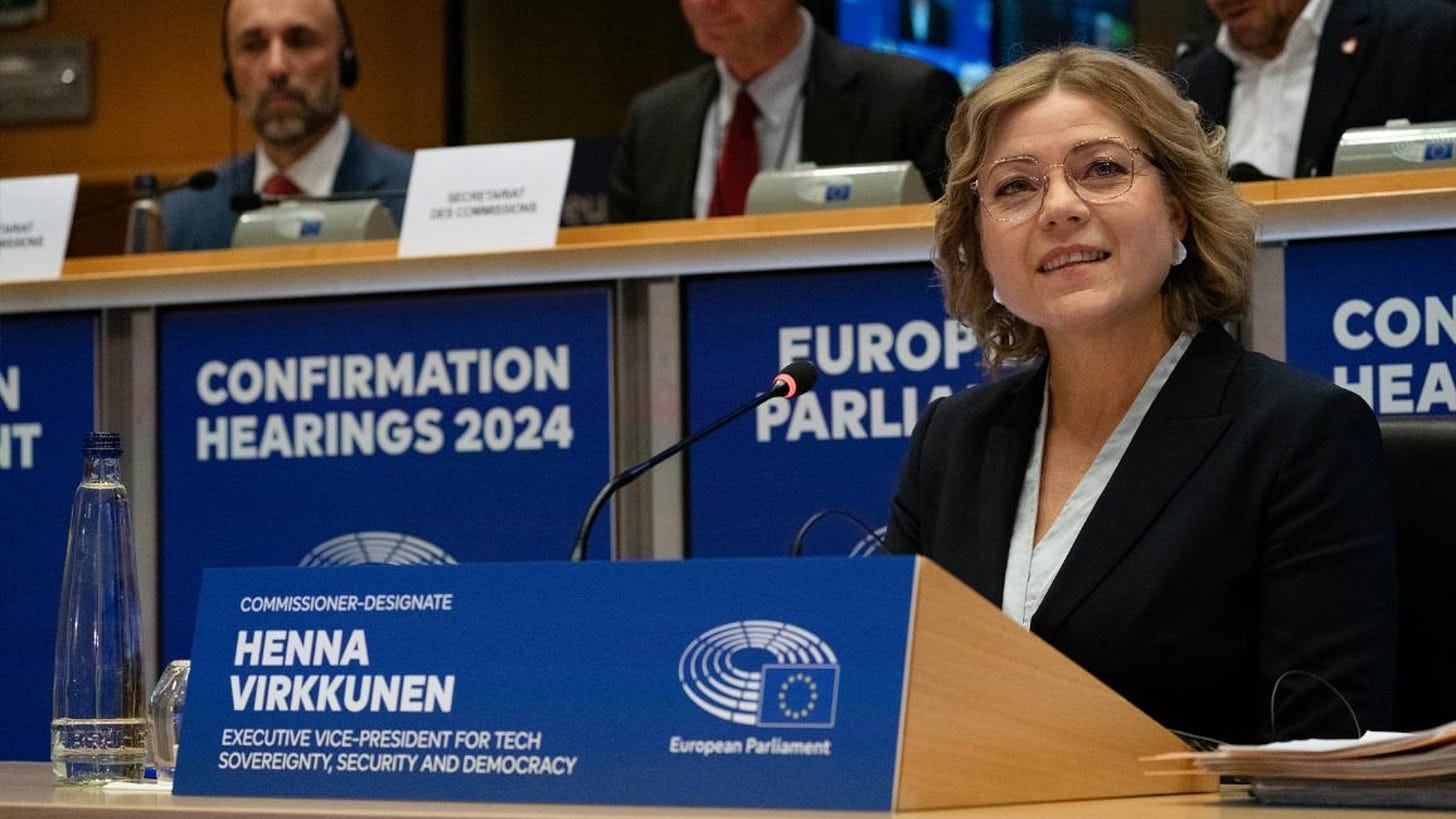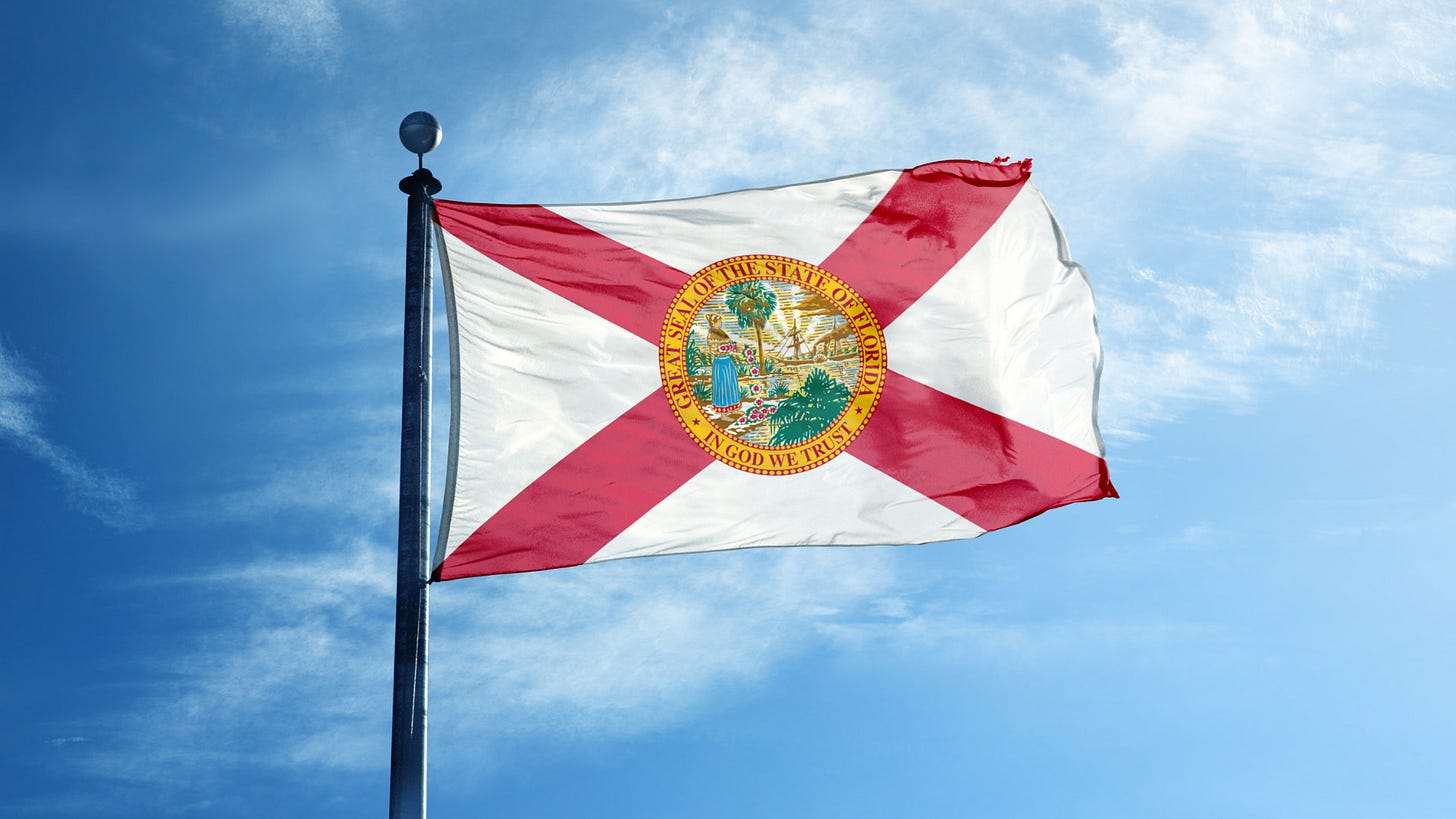The Free Flow — May 29, 2025
Trump administration to target Chinese student visas, U.S. student visa interviews halted to expand social media vetting, EU pressures Ireland to enact stronger hate speech laws, and more.
First of All

» Trump Administration Bars Harvard from Enrolling Foreign Students
The Trump administration has moved to revoke Harvard University’s authorization to enroll foreign students. The Department of Homeland Security cited campus safety concerns and alleged antisemitism, claiming Harvard had failed to protect Jewish students and harbored foreign “pro-terrorist agitators.” However, a federal judge extended a temporary order to block the administration until it can be replaced with a preliminary injunction this morning.
Context:
Harvard hosts more than 7,000 international students, over a quarter of its student body, who typically pay full tuition and significantly contribute to the university’s budget.
The move is part of a broader federal campaign targeting universities over campus speech and DEI programs that we’ve been tracking on the Free Flow.
Constitutional Concerns: The administration has demanded viewpoint audits of students and faculty, prompting Harvard to file a federal lawsuit alleging violations of constitutional and due process rights.
» U.S. Announces Plan to Target Chinese Students’ Visas
Secretary of State Marco Rubio announced an aggressive policy to revoke visas of Chinese students with alleged ties to the Chinese Communist Party or those studying in unspecified “critical fields.” The administration is also revising visa criteria to apply stricter scrutiny to all future applicants from China and Hong Kong.
Details:
Rubio framed the visa crackdown as a defense of American values, stating that foreign officials who censor U.S. citizens or pressure U.S.-based tech platforms to censor content should not be allowed entry.
He emphasized that “it is unacceptable” for any foreign authority to attempt global content moderation or issue arrest warrants based on speech originating in the United States.
The directive builds on a 2020 policy that barred Chinese nationals affiliated with military universities and could impact a substantial share of the roughly 275,000 Chinese students currently in the U.S.
» Trump Administration Halts Student Visa Interviews to Expand Social Media Vetting
The Trump administration has ordered a pause on new student and exchange visa interviews as it prepares to significantly broaden social media screening for all foreign applicants.
Details:
A State Department cable signed by Secretary of State Marco Rubio instructed embassies to freeze appointment scheduling for F, M, and J visa categories pending new guidance.
The proposed policy marks a sharp escalation in vetting procedures, potentially targeting students based on their viewpoints expressed online.
Previous efforts reported in past Free Flows had primarily targeted returning students, but the new initiative would apply preemptively to all applicants.
» U.S. to Deny Visas to Foreign Officials Who Censor Americans’ Social Media
Secretary of State Marco Rubio announced that the U.S. will begin denying visas to foreign officials involved in what he calls “flagrant censorship actions” targeting Americans’ social media content.
Details:
The policy aims to protect Americans from foreign legal actions or platform directives that restrict speech posted from within the U.S. on American-based services like X and Facebook.
Though no officials were named, Rubio hinted at potential sanctions against Brazilian Supreme Court Justice Alexandre de Moraes, who has clashed with Elon Musk, ordered takedowns of U.S. accounts, and has been accused of weaponizing liberal philosophy and the First Amendment against free speech.
Context: This comes as part of a broader initiative by the State Department to target Europe’s Digital Laws, which last week sent a request to its European offices seeking “examples of government efforts to limit freedom of speech.”
» FTC Probes Media Matters Over Alleged Collusion with Advertisers
The Federal Trade Commission has launched an investigation into Media Matters, a left-leaning watchdog group, over allegations it may have illegally coordinated with advertisers to damage X, which Elon Musk owns.
Details:
The FTC sent a letter requesting Media Matters’ internal budgets, advertiser communications, and documents related to its ongoing lawsuit with X.
The probe follows a lawsuit Musk filed in 2023, accusing Media Matters of orchestrating a coordinated advertiser boycott after the group reported that brand ads were appearing next to antisemitic content on X.
Media Matters’ president called the inquiry a form of political retaliation and a threat to its constitutionally protected oversight of powerful platforms.
The Digital Age
» Judge Allows Challenges to Florida Social Media Law to Proceed
A federal judge has denied the state of Florida’s motion to dismiss a First Amendment challenge to SB7072, the state’s controversial “must-carry” social media law. The lawsuit will now proceed to trial.
Details:
SB7072 prohibits large platforms from deplatforming political candidates and compels equal treatment of users, effectively mandating content be hosted regardless of editorial discretion.
The U.S. Supreme Court previously ruled that editorial choices made by digital platforms are protected speech under the First Amendment and remanded the case for further litigation on scope.
» Florida Judge Says AI Chatbot Cannot Rely on First Amendment
A federal judge in Florida has ruled that Character.AI cannot yet rely on the First Amendment to dismiss a wrongful death lawsuit alleging its chatbot encouraged a teenager to take his own life.
The case, filed by Megan Garcia over the suicide of her 14-year-old son, is now set to proceed, marking a potential legal landmark in how constitutional protections apply to AI-generated speech.
Details:
Garcia’s lawsuit claims the chatbot engaged her son in an emotionally manipulative and sexually abusive relationship, eventually urging him to “come home to me” moments before he died by suicide.
The chatbot was modeled on a fictional character from Game of Thrones, and the suit names Character Technologies, Google, and individual developers as defendants.
U.S. Senior District Judge Anne Conway declined to rule that the chatbot’s outputs are protected speech, stating she is “not prepared” to extend First Amendment protections to AI-generated responses at this early stage.
The Brussels Effect: Europe and Beyond

» EU Pressures Ireland to Enact Tougher Hate Speech Laws
The European Commission recently issued a formal warning to Ireland, giving it two months to comply with EU rules requiring the criminalization of hate speech or face legal action at the European Court of Justice.
Details:
The Commission says Ireland has failed to fully transpose the 2008 EU Framework Decision on combating racism and xenophobia.
Though Ireland criminalizes incitement to hatred under the Prohibition of Incitement to Hatred Act 1989, just five convictions have been recorded as of 2017, and Brussels considers the framework outdated and incomplete.
Ireland must now introduce legislation covering public incitement to violence or hatred based on characteristics such as race, religion, or ethnicity, as well as Holocaust denial and the trivialization of international crimes.
Context: The move comes as Brussels seeks to enforce longstanding legislation around incitement to violence and the denial or trivialization of international crimes, including the Holocaust.
» EU Expands Sanctions Over Russian Threats
On May 20, the European Council imposed new restrictive measures on 21 individuals and six entities linked to Russia’s hybrid operations aimed at destabilizing the EU, its member states, and international partners.
The sanctions broaden the existing framework to include physical assets and media operations, a significant escalation in the EU’s push to counter foreign interference.
Details:
Entries listed include phishing companies allegedly involved in espionage, media operations in Africa spreading anti-Western narratives, and web infrastructure providers accused of enabling cyber operations.
The scope of the framework now covers assets such as vessels, real estate, and digital infrastructure used in destabilizing activities. It also targets financial and crypto institutions that facilitate such operations.
The Council can now suspend broadcasting licenses of Kremlin-controlled media outlets involving systematic disinformation.
» Public Consultation On EU’s Democracy Shield Draws Criticism
In an expansion of its information defense strategy, the European Commission has proposed a Democracy Shield, a non-legislative initiative aimed at countering foreign interference in elections.
Details:
A public consultation on the Democracy Shield ended May 26, while a call for proposals to support a European Network of Fact-Checkers was launched in April.
We’ve submitted a public comment expressing our concern over the Shield’s potential to cement top-down fact-checking, censor lawful speech, and fuel distrust in institutions.
» Transatlantic Rift Deepens Over EU Digital Services Act
On May 21, a cross-party event at the European Parliament spotlighted mounting concerns from U.S. lawmakers and civil society groups about the DSA’s potential to stifle online free speech.
DSA Criticism:
The conference follows criticism from U.S. officials that Europe is retreating from its fundamental values and over-restricting speech.
MEP Virginie Joron warned, “What was sold as the Digital Services Act is increasingly functioning as a Digital Surveillance Act. The European Commission, alongside some parliamentarians, has seized upon the DSA as a political tool to control speech, particularly targeting platforms like X, Facebook, and Telegram.”
EU Pushback:
A week later, European Tech Commissioner Henna Virkkunen told Euractiv that U.S. social media platforms are responsible for vastly more content takedowns than EU regulatory mechanisms.
Virkkunen cited new transparency data showing that just 1% of takedowns in the EU involved trusted flaggers, and 0.001% stemmed from national authorities’ decisions.
However, as we have warned elsewhere, the Digital Services Act incentivizes platforms to over-remove content with vague requirements to mitigate “systemic risk.”
» Former Meta Executive Slams Celebrity-Backed Amendment to UK Copyright Bill
As the UK Parliament debates new rules on how AI companies train their models, former Meta executive and former UK Deputy Prime Minister Nick Clegg warned that requiring permission from rights holders before using their content would “basically kill the AI industry in this country overnight.”
Details:
Clegg’s remarks come amid support for a proposed amendment to the Data and Access Bill that would require companies to disclose what copyrighted content was used in training AI models, as mentioned in a previous Free Flow.
Although the amendment was backed by high-profile artists including Elton John and Dua Lipa, Parliament rejected the measure last week.
Speaking at a promotional event for his new book, Clegg acknowledged creators’ right to opt out but called pre-consent logistically unworkable.
Press Freedom Watch
Zimbabwean Journalist Faces Jail for Interview Criticizing Government: After publishing an interview critical of the government, Zimbabwean authorities charged journalist Blessed Mhlanga and media outlet Heart and Soul, alleging they incited violence. The interview featured a ruling party veteran who criticized President Mnangagwa and opposed constitutional amendments that would remove presidential term limits. Mhlanga was granted bail on May 6, but could still face up to five years in prison and a fine.
Albanian Journalists Harassed During Parliamentary Election: At least 20 journalists and media outlets have faced harassment during a wave of intimidation and obstruction targeting reporters covering Albania’s May 11 Parliamentary elections. Notable cases have involved physical assault, forced deletion of recordings, on-air obstructions, and the restriction of accredited media observers at polling stations.
Study Attributes Israeli Misperception to Media Censorship: A new survey of nearly 3,000 Jewish Israelis by the Center for Open Science found widespread Israeli misperceptions about the scale of Gaza’s humanitarian crisis, shaped by media censorship and online echo chambers that hinder exposure to accurate information. Israeli media have been heavily censored since October 7, with over 35% of articles partially redacted and 10% fully censored. When survey participants were shown uncensored Ynet articles describing starvation in Gaza, support for aid rose about 5 percentage points.
Protest Watch
Sudanese Rights Defender Abducted by Embassy: Sudanese asylum seeker and human rights defender Mohammed Adam was abducted on May 19 by Sudanese embassy staff in Tripoli, Libya. Adam, a registered refugee, sought a passport when he was violently detained within embassy premises and is suspected to be forcibly returned to Sudan, where he faces a high risk of torture and arbitrary detention.
Leningrad Siege Survivor Fined for “Discrediting” Russian Army: An 84-year-old Russian woman and WWII survivor has been fined for a peaceful anti-war protest, where she stood with a placard that read, “People, let’s stop the war. We are responsible for peace on the planet Earth.” Lyudmila Vasilyeva was fined 10,000 rubles by a Saint Petersburg court for “discrediting” the Russian army.
Hamas Security Services Target Protestors in Gaza: Over the past two months, Hamas authorities have launched a harsh crackdown on Palestinians protesting both the war and Hamas’ rule. Hamas-run security forces have responded to slogans increasingly criticizing Hamas’ failure to protect civilians and its repressive governance with physical violence, threats or arrests, and arbitrary investigations.
UK Police Arrest Protester Criticizing Hamas and Israel: Veteran human rights campaigner Peter Tatchell was arrested on May 17 during a pro-Palestinian demonstration in London. Tatchell was carrying a placard condemning both Israeli military actions and Hamas’s reported execution of a young Gazan protester, Odai Al-Rubai. Police arrested him under suspicion of a “racially and religiously aggravated breach of the peace,” it’s reported that his protest was peaceful and within a designated area.
Quick Hits
Tanzanian Rights Defenders Tortured and Deported for Observing Opposition Trial: After traveling to observe the trial of opposition leader Tundu Lissu, human rights defenders Agather Atuhaire and Boniface Mwangi were detained on May 19 and held incommunicado for four days at an undisclosed location, where they were allegedly beaten, stripped, and tortured by individuals believed to be part of the Tanzanian military. Although the pair was released after civil society pressure from Kenya and Uganda, Mwangi was abandoned at border posts on May 22, and Atuhaire a day later with visible injuries.
Telegram Founder Barred from Speaking In Person at Oslo Freedom Forum: French courts have denied Telegram founder Pavel Durov’s request to leave the country to attend the Oslo Freedom Forum, where he was scheduled to speak on free speech, surveillance, and digital rights. Durov was released on bail in France after his arrest in 2024 over Telegram’s alleged use by criminal actors.
Pakistan’s Blasphemy Law Investigation Halted Amid Intimidation and Lack of Gov Cooperation: On May 21, the National Commission for Human Rights informed the Islamabad High Court that it had suspended its investigation into alleged misuse of blasphemy laws due to safety threats and obstruction by the Federal Investigation Agency. The case stems from a 2024 petition by 101 families claiming their relatives were falsely accused by a gang using blasphemy charges for extortion, but harassment of human rights workers and state agencies’ refusal to cooperate have stalled an investigation.
Pakistani Christian Acquitted of Blasphemy Charges: A Pakistani Christian man, Chand Shamaun, was acquitted on May 10 after spending nearly a year in jail facing charges for “ insulting Islam, threatening desecration of the Quran and causing religious tensions.” Shamaun had faced up to 17 years under the charges of blasphemy and terrorism, but the presiding judge cited “major discrepancies” and “contradictions” in the prosecution’s case and witness testimonies.
Court Rules Clearview AI’s Sale of Financial Data is Not Protected Speech: A California appeals court ruled that Clearview AI cannot shield itself from privacy litigation by claiming its sale of facial recognition data to law enforcement is protected speech. This decision allows plaintiffs to proceed with a lawsuit alleging Clearview’s facial recognition database violates their privacy and publicity rights.
YouTuber Loses Lawsuit Over Account Termination: After a public feud between two YouTube users led to multiple takedown requests and copyright disputes, one user filed a lawsuit alleging that the company mishandled takedown requests, reinstated copyright-infringing content, ignored his harassment complaints, and breached its Terms of Service by terminating his channels. A federal court found the plaintiff’s claims to be insufficient, noting that YouTube’s Terms of Service explicitly grant the company wide discretion in moderating content.
Ashley Haek is the Communications Coordinator at The Future of Free Speech.




